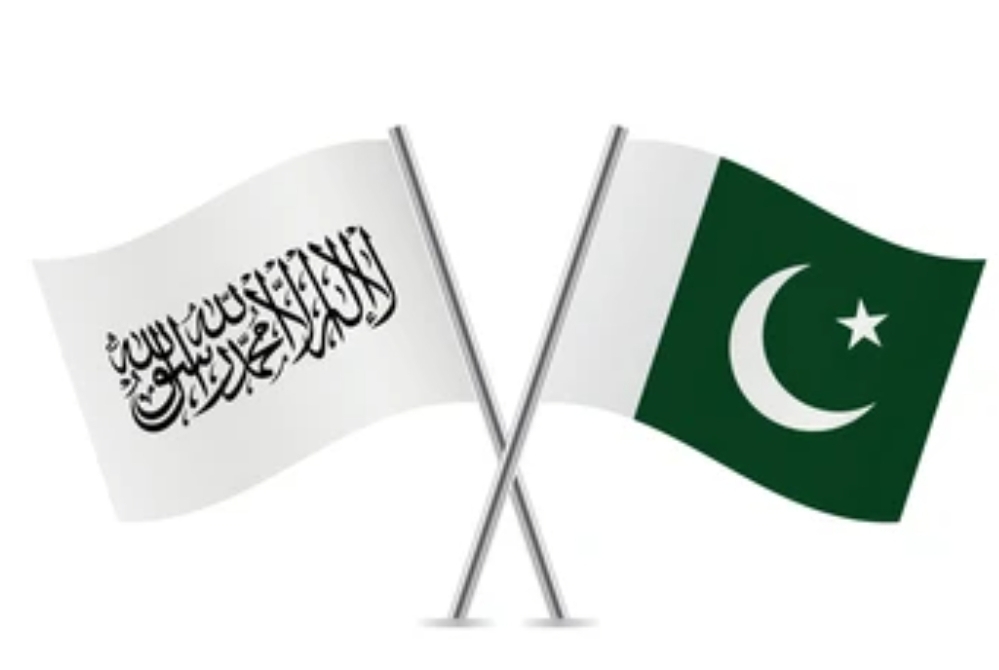Pakistan-Taliban Tensions Boil Despite Imperative to Cooperate
 Michael Hughes
Michael Hughes
October 8, 2022
Although the Taliban at the moment may not need weapons from Rawalpindi due to the gifts left behind by the U.S. military, Afghanistan needs Pakistan as an export market, while Islamabad, for its part, needs the regime in Kabul to deny the Pakistani Taliban (TTP) sanctuary. However, despite these mutual strategic necessities, tensions between Kabul and Islamabad are seeming to rise by the day because of other diverging interests.
A major driver of the cleavage is the Afghan Taliban’s egoistic need to no longer be seen as Pakistan’s “proxy” warriors. This goes hand-in-hand with a strong interest in maintaining its Islamist bonafides when it comes to dealing with TTP. Afterall, what kind of hardcore Islamic radical movement throws Muslim insurgents under the bus?
Pakistan’s interior ministry earlier this week issued a nationwide terror alert amid a boost in militant activity after talks between Islamabad and TTP collapsed. On Friday, a bipartisan group of Pakistani senators sounded alarms over this surge in violence and complained that the government kept parliament in the dark with respect to both the negotiations, mediated by the Afghan Taliban, as well as the cessation in hostilities.
The uptick in cross-border attacks launched from sanctuaries on the Afghan side of the border, in a sort of bitter twist of irony, escalated right after the Taliban seized Kabul. The attacks have left over 155 Pakistani security personnel dead within the past year. In reaction, amid Kabul’s unwillingness to crack down on the TTP, Pakistan’s military launched surprise kinetic action on Afghan soil, which has drawn condemnation from Taliban officials.
The issue has become both a security and a political problem for Pakistan as citizens take the streets to protest against the rise in TTP attacks. Residents in Swat are not only protesting but vowing to take up arms themselves if the security forces cannot stem the tide.
The Taliban have also lashed out at their former hosts for agreeing to cooperate with the U.S. military. Last week, Kabul accused Islamabad of “receiving millions of dollars” from Washington as payment for allowing American drones to fly over Pakistani airspace to conduct strikes in Afghanistan. This came after Prime Minister Shehbaz Sharif in his UN General Assembly address said he shared the global community’s concerns about terrorist entities operating inside Afghanistan.
Pakistan, to be sure, lost much leverage with the former insurgents after the Americans abandoned $10 billion worth of weaponry and military equipment in the wake of their exit from Afghanistan. This bonanza reportedly included over 420,000 assault rifles and machine guns, 200 artillery units, 65,000 armored vehicles and trucks, in addition to other large scale military equipment. One U.S. lawmaker, Congressman Jim Banks, said the Taliban now have more Black Hawk combat helicopters than 85% of the countries on earth.
However, in other ways, the Taliban are highly dependent on Pakistan, whose export market represents nearly $800 million per month in revenue for Afghanistan’s economy, roughly $9.5 billion annually in a country with a gross domestic product of about $20 billion. Not to mention border restrictions prevent Afghans from getting important healthcare treatment from Pakistani medical specialists.
Maleeha Lodhi, a former Pakistani ambassador to the U.S., UK, and UN, is concerned by the total lack of diplomatic engagement between the two sides in recent months, in addition to the violence and escalation in rhetoric. And she has grown weary of Pakistani officials repeatedly telling the public that the relationship is “smooth” and “good.” She also underscored, however, that the need does not diminish the reality and nature of the hurdles to working together.
“Cooperative relations with Afghanistan are a strategic compulsion for Pakistan but that does not minimize the many problems that stand in the way of achieving this,” Lodhi wrote in a Dawn op-ed published on October 8.
Lodhi said both sides have responsibilities they are failing to uphold, which have come with grave consequences. The Taliban, she pointed out, have totally ignored Pakistani pleas with respect to women’s rights. She also acknowledged the reality that the situation will likely not change due to the radical movement’s internal divisions.
“By relapsing into its regressive past and not responding to the concerns of the global community the Taliban have themselves contributed to diminishing interest in engagement,” Lodhi said. “Infighting and power struggles among the Taliban is a key factor behind Kabul’s inability to embark on a course correction and is complicating and retarding decision-making.”
Frustration with the Afghan Taliban is emanating from all sectors of Pakistani society, but the anger runneth deepest within the politico-military establishment because the very same strategic assets Islamabad birthed – and the deep state for years groomed and empowered – are suddenly not keeping up their side of the grand bargain. It turns out the post-NATO exit “endgame” Pakistan had envisioned, sought and achieved, is actually just a new beginning.
